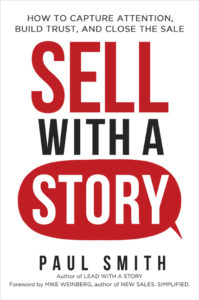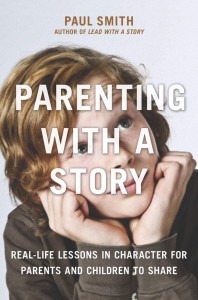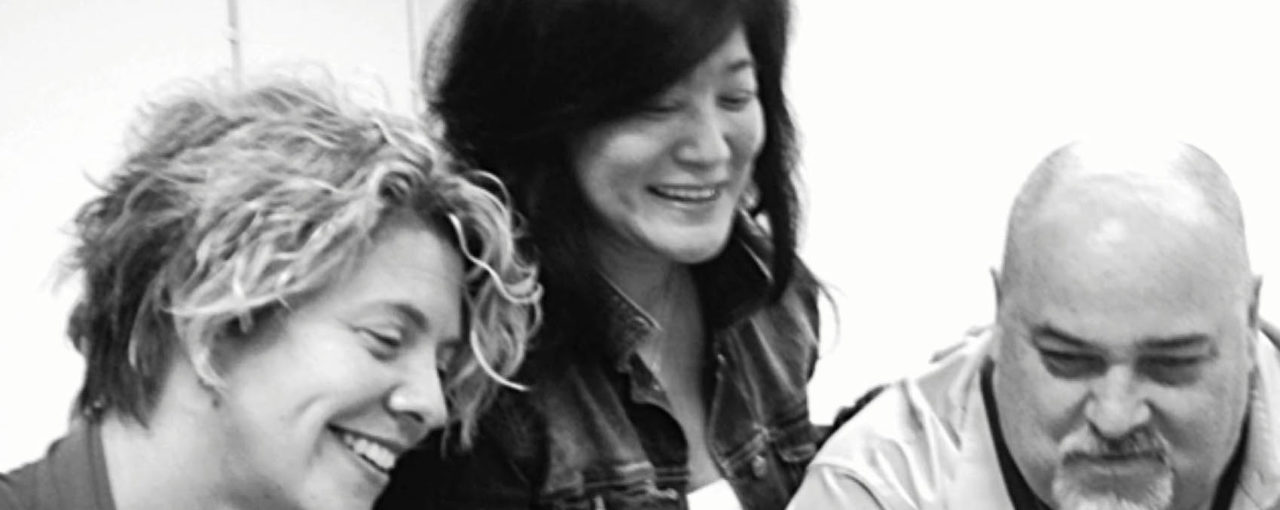Podcast: Play in new window | Download | Embed
Subscribe: RSS
Podcast (parenting-with-a-story-podcast-series): Play in new window | Download | Embed
Subscribe: RSS
 Becky Okamoto is the principal and founder of an operational consulting company called the Evoke Strategy Group, LLC. But she’s an engineer by training, and spent most of her career in and around manufacturing.
Becky Okamoto is the principal and founder of an operational consulting company called the Evoke Strategy Group, LLC. But she’s an engineer by training, and spent most of her career in and around manufacturing.
Meeting Marvin
Earlier in her career, she was part of the leadership team at a production facility in California. It was one of the most diverse leadership teams she’d ever been a part of. In addition to her as an Asian American, there were two other women on the team and two Hispanic managers as well. In an otherwise Caucasian, male-dominated country and industry, it was nice to be on a team where her culture and values weren’t in the minority. She felt comfortable. Until a guy we’ll call “Marvin” showed up.
Marvin was the newest member of the leadership team. And as Becky described him, “He was very ‘white male,’ a man’s man, played football in high school and college, loved talking about sports.” Her first impression?
I did not like him.”
She recalls in one of the first meetings he attended, he was sharing some analogy about Scottie Pippen he thought would help make his point. When one of the Hispanic women asked who Scottie Pippen was, he was astonished. “He plays for the Chicago Bulls!” he blurted out.
To which she replied, quite unimpressed, “What are the Chicago Bulls?” If there was any indication he was out of his element, this was it.
Becky also didn’t like that he’d just come from an assignment in marketing (unusual for a team of engineers) and he was very aggressive. She admitted, “I was competitive myself and I probably felt threatened by him.” As a result, their interactions were often antagonistic.
Becky soon went to a confidant on the team, Ernie Ahumada, to vent. “Ugh, he’s so arrogant! I really don’t like him.” Since Ernie was a minority manager himself, Becky assumed he’d be sympathetic to her complaints. His response was anything but.
Becky, it’s your fault you don’t like Marvin. This has nothing to do with him. This is your problem. If you decided to like Marvin, you’d like Marvin.”
How did Becky feel about Ernie’s response? “I was so mad! He was supposed to take my side!”
But Ernie wasn’t done. He continued, “You need to make an attempt to like Marvin. If you did, you’d find out he’s exactly like you.”
“Oh no, he is not!” Becky shot back.
“Yes, he is,” Ernie assured her. “You both have the same values. And I have tremendous respect for both of you. Why wouldn’t you respect each other?”
Ernie convinced her that she’d just made a judgment about Marvin because of his cultural differences growing up as a white male versus her as a Japanese female. “You need to approach Marvin, and you need to like him.”
So she decided to follow his advice. She went to Marvin and said,
I want to make our relationship work. I don’t want to keep fighting. I apologize because I’m the problem.”
Recalling that moment, she admitted how hard it was to muster those words. “It darn near killed me. But I’m so glad I did it.”
Marvin’s response was, “I want to make this better too. It’s not working, and it’s a shame. We should do something about it.” A gracious response, Becky thought, given the circumstances.
She described their progress this way. “As we started working together with more positive intent, we found out Ernie was right. We had the same core values and had the same goals for the organization. We just had different ideas about how to get there.
After that, we would still have animated debates about what to do. But we did it respectfully and knew that we both shared the same objective.”
The Lesson
Looking back after two decades, Becky sees several lessons in this experience:
- Don’t judge the proverbial book by its cover. Marvin wasn’t the arrogant white male she assumed him to be.
- Not liking someone is a choice, which meant that liking that person is also a choice. Liking someone or respecting someone is something you do, not something that happens to you without your control.
- A genuine apology is a powerful tool for taking a relationship in a different direction.
- She learned from Ernie’s example what good friendship looks like. It would have been easy for Ernie to sympathize with her complaints and join her in criticizing Marvin. “But he didn’t take the bait,” she explained. “He never said a bad word about Marvin.”
Today, Becky describes Marvin as “one of my most trusted and respected mentors, coaches, and role models. I admire him greatly.” The two enjoy a wonderful relationship. And it all started with a decision to be friends.
Use these links to subscribe to this podcast on iTunes or Stitcher, or Podbean.
Source: Parenting with a Story: Real-life Lessons in Character for Parents and Children to Share, by Paul Smith.
—
 Paul Smith is one of the world’s leading experts on business storytelling. He’s a keynote speaker, storytelling coach, and bestselling author of the books Lead with a Story, Parenting with a Story, and Sell with a Story.
Paul Smith is one of the world’s leading experts on business storytelling. He’s a keynote speaker, storytelling coach, and bestselling author of the books Lead with a Story, Parenting with a Story, and Sell with a Story.


 Connect with him via email here.
Connect with him via email here.
Follow him on Facebook, LinkedIn, Twitter, and Instagram.
Sign up for his newsletter here to get one new story a week delivered to your inbox.

